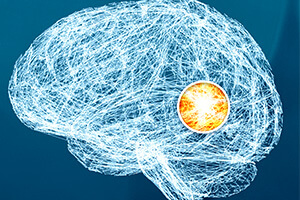Drinking alcohol is widely accepted in society today. It is often a big part of holiday gatherings and celebrations. Over the last 40 years, scientists have begun to study the effects of alcohol on the brain and overall health. This knowledge is slowly becoming more accepted within our society and behavioral changes can be seen in the younger generation.
Most everyone has either had personal experience with or has seen the effects of excessive drinking and the side effects that may include all or some of the following.
- Loss of coordination
- Blurred vision
- Slurred speech
- Slower reaction times
- Impaired memory
- Breathing and heart rate irregularities
- Vomiting
- Coma or death
Sometimes these impairments are visible after consuming only one or two drinks.For those that drink more heavily and over a long period of time, these symptoms become more detrimental to the brain and can be present even in sobriety.
Why are some people more affected by alcohol than others? Below are some factors to consider.
Research shows that heavy Substance Abuse has extensive and far–reaching effects on the brain, either in memory lapses, permanent, debilitating conditions, and even death.
- The frequency and amount you drink.
- The length of time you have been drinking and starting at an early age.
- Your age, education, gender, and family history.
Let’s look at the negative effects of alcohol abuse and who is most susceptible.
- Blackouts and memory loss are prevalent in both men and women. Drinking quickly and on an empty stomach can result in memory loss and blackouts where you cannot remember event details, if at all.
- Women are most susceptible to cirrhosis of the liver, alcohol-induced damage to the heart, and nerve damage.
- Both men and women run the risk of developing brain damage from the excessive use of alcohol
- Both men and women who drink alcohol excessively may become malnourished resulting in the depletion of thiamine and vitamin B1 which are necessary for brain health
- Wernicke-Korsakoff syndrome, more commonly known as ‘wet brain’ results in mental confusion, nerve paralysis, and the lack of muscle coordination.
- Liver disease is a result of heavy, long-term drinking. Liver disease symptoms include weight loss, jaundice, swelling in the ankles and tummy, confusion, and blood in vomit or stools.
- Drinking during pregnancy can lead to physical, learning, and behavioral problems in the developing child, most seriously resulting in fetal alcohol syndrome (FAS).
If you’re seeking treatment for a loved one, our family program and caring staff recognize that addiction doesn’t only affect the person struggling with substance abuse but also affects those around him or her. Healing Springs Ranch, located in Tioga Texas, provides recovery support. Some of the highlights of therapy include core curriculum groups, Psychodrama, Art Therapy, Anger Management, ETT, and a Wellness Program. Residential treatment for adults recovering from substance use, alcohol, and other related mental health issues.

